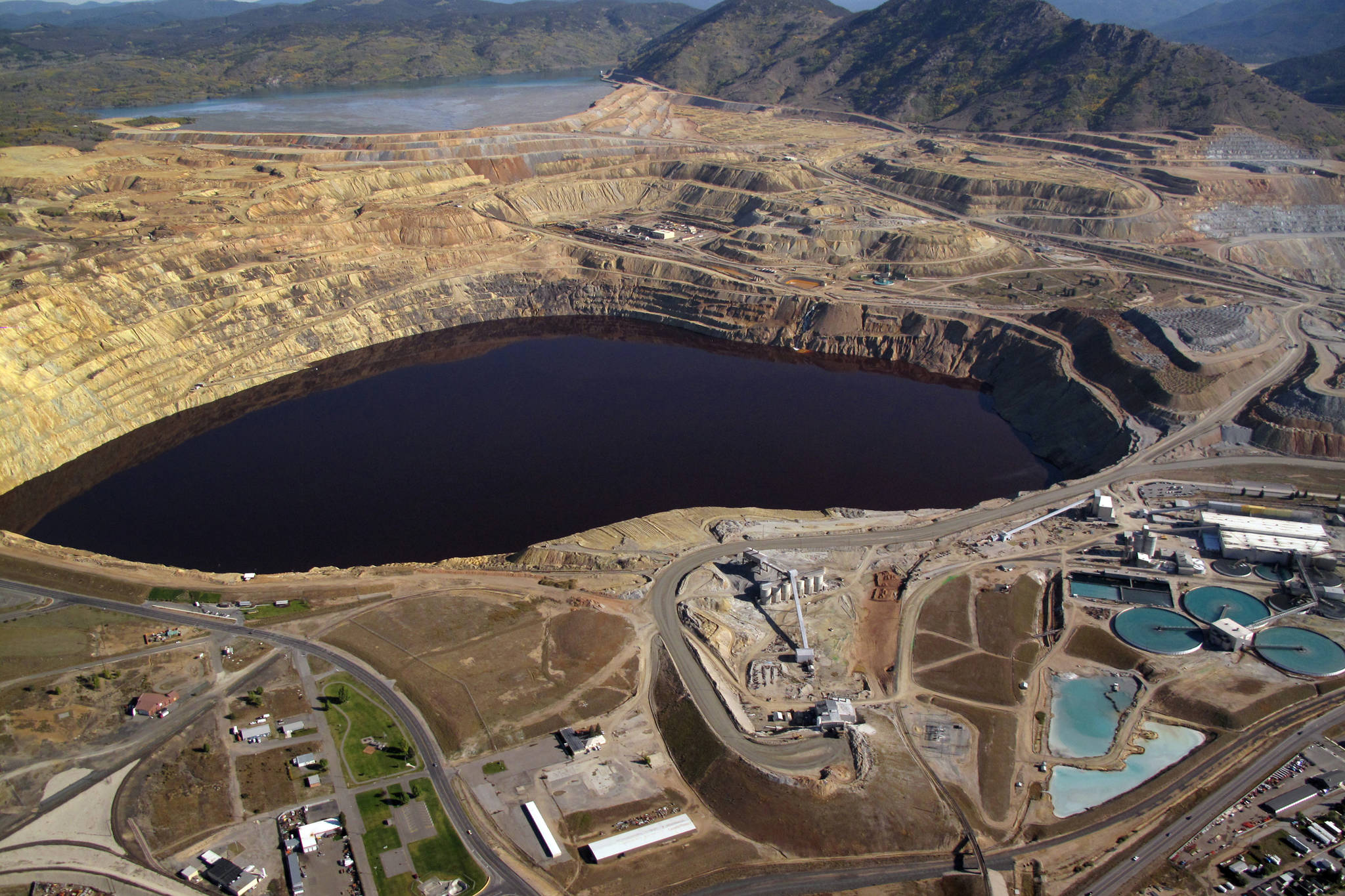We’re blessed with world-class fishing in our home state of Montana. But as any angler knows, it simply isn’t fair to compare Lower 48 fishing to Alaska fishing. The trout are great here at home. But we go to Alaska for salmon.
It’s been our good fortune to take a number of fishing trips to Alaska over the years. Yakutat. Kenai. Bristol Bay. These are the scenes for some of our most cherished memories.
Over the years we’ve developed a deep respect and appreciation for Bristol Bay’s world-class salmon runs, and observed the ongoing debate over the proposed Pebble Mine. With the permitting process underway, we feel the need to share our experience with a copper mine of similar size.
The Berkeley Pit abuts the City of Butte on Silver Bow Creek in southwestern Montana, headwaters of the Columbia River’s Clark Fork. It closed in 1982, leaving behind a huge open pit filled with 50 billion gallons of toxic water (for comparison, the current Pebble proposal will create a pit filled with 61 billion gallons).
[Opinion: Pebble Mine is bad for business and worse for America’s outdoor heritage]
The Berkeley Pit is full of highly contaminated water, containing copper, arsenic and other heavy metals that leach out of the rock. In November 2016, a flock of snow geese landed in the pit to escape a snowstorm. Thousands died, the polluted water corroding their throats.
This contaminated water requires perpetual treatment. The highly toxic water, which has already polluted our groundwater and the neighboring river, must be captured and treated every day, every year, forever in order to prevent further pollution downstream. It is now one of the country’s biggest Superfund sites.
All together, it polluted more than 100 miles of waterways in the upper Clark Fork River and destroyed the entire aquatic environment in the first 30 miles above Warm Springs Creek.
As Montanans, we are intimately familiar with the mining industry and honor its place in our history. We’ve worked at mines and have family members who were miners. But we also live with mining’s other legacy: permanent pollution. It is impossible to overstate the lasting harm this mine has caused to water and wildlife.
[Opinion: We are an Alaska Native Corporation that backs Pebble Mine. Here’s why]
A thousand years from now, future generations will still be faced with pollution from the Berkeley Pit. Water pollution is a common occurrence at copper mines where, despite the best intentions of mining companies, it is not a matter of if water pollution occurs, but when. A 2012 report shows that nearly every operating U.S. copper mine has resulted in spills and failed to contain toxic releases.
It is one thing to treat water in a place like Butte, where we have roads and other infrastructure. It’s another thing entirely to attempt in remote Bristol Bay.
The current Pebble Mine proposal is smaller than the original, but that doesn’t mean it is small. The Berkeley Pit is massive: a mile and a half wide and nearly 2,000 feet deep. Even at that massive size, Pebble is certain to get much, much bigger.
One thing you learn from living in a mining town is that mining companies continue to mine as long as there are valuable minerals in the ground. Even though the Berkeley Pit is now a Superfund site, mining has continued in the Continental Pit immediately adjacent.
It defies our imagination to picture this level of disruption in the pristine headwaters of Bristol Bay, where the economic driver is salmon.
Come to Butte. See for yourself. There are plenty of places to mine copper, but no place left on earth with salmon runs like Bristol Bay.
Steve Luebeck and Rich Day are sportsmen from Butte, Montana.
• Steve Luebeck and Rich Day are sportsmen from Butte, Montana. My Turns and Letters to the Editor represent the view of the author, not the view of the Juneau Empire.

